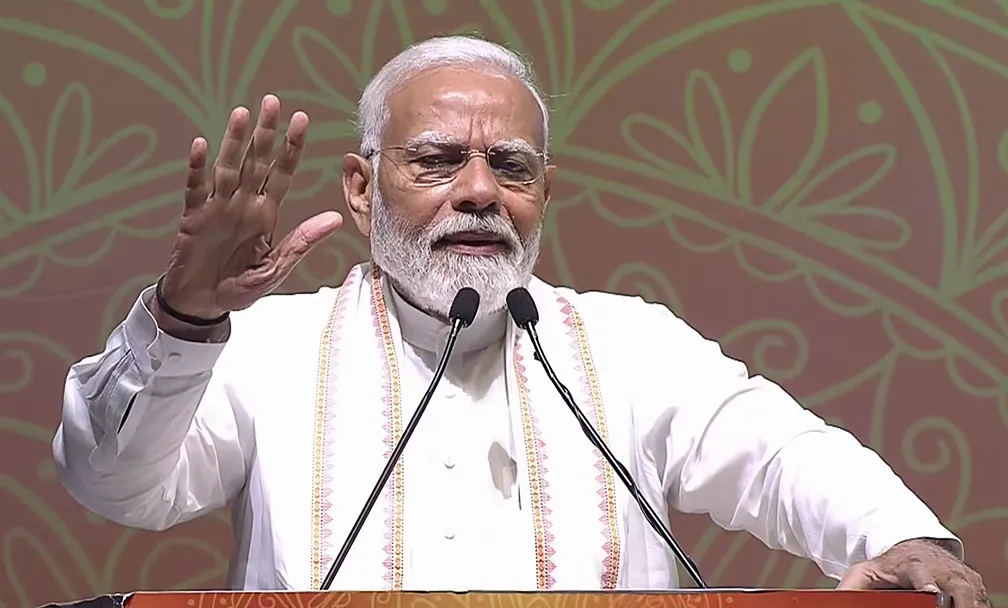New Delhi, Apr 24: In a virtual address today, Prime Minister Narendra Modi engaged with global leaders and delegates at the 6th International Conference on Disaster Resilient Infrastructure. Welcoming the participants, the Prime Minister highlighted the significance of their involvement in shaping the global dialogue on disaster resilient infrastructure, in the face of escalating natural disasters and emphasizing its criticality for the world’s future.
The Prime Minister highlighted the growth of the Coalition for Disaster Resilient Infrastructure (CDRI), noting its expansion to include 39 countries and 7 organizations since its inception in 2019.
In his address, Prime Minister Modi underscored the devastating impact of natural disasters, emphasizing that their toll extends far beyond monetary evaluations, profoundly affecting individuals, families, and communities.
“As we all have witnessed, natural disasters are becoming more frequent and more severe. The damage they cause is usually reported in dollars. But their true impact on people, families and communities is beyond just numbers. Earthquakes destroy houses, making thousands of people homeless. Natural disasters can disrupt water and sewage systems, putting the health of people at risk. Some disasters can impact energy plants, leading to potentially dangerous situations. These things have a human impact,” said Prime Minister Modi.
Asserting the imperative of investing in resilient infrastructure for a better tomorrow, Prime Minister Modi emphasized “We must invest in resilient infrastructure today, for a better tomorrow. Resilience needs to be factored into new infrastructure creation. Further, it also needs to be a part of post-disaster rebuilding. After disasters, the immediate focus is naturally on relief and rehabilitation. After the initial response, our focus should also include resilience of infrastructure.”
Highlighting the interconnectedness of nations in the face of natural calamities, Prime Minister Modi stressed the importance of individual resilience to bolster collective resilience globally.
“Nature and disasters have no borders. In a highly interconnected world, disasters and disruptions cause widespread impact. The world can be resilient collectively, only when each country is resilient individually. Shared resilience is important because of the shared risks. CDRI and this conference help us come together for this collective mission.”
He commended CDRI’s initiatives to support vulnerable regions, particularly Small Island Developing States, in fortifying their infrastructure against disasters.
Prime Minister Modi recalled India’s initiatives during its G20 Presidency, including the establishment of a Disaster Risk Reduction Working Group, expressing confidence in CDRI’s role in steering the world towards a resilient future. “During India’s G20 Presidency, an important step was taken. A new Disaster Risk Reduction Working Group was formed with financing at the heart of the discussions. Along with the growth of CDRI, such steps will take the world to a resilient future.”
He concluded with optimism about the forthcoming deliberations at the conference.
India-led initiative, the CDRI, launched by Prime Minister Modi during the United Nations Climate Action Summit in 2019, aims to enhance infrastructure resilience to climate and disaster risks. With the Cabinet’s approval and financial backing, CDRI has evolved into an international organization, symbolizing India’s commitment to global leadership in climate change and disaster resilience efforts.







